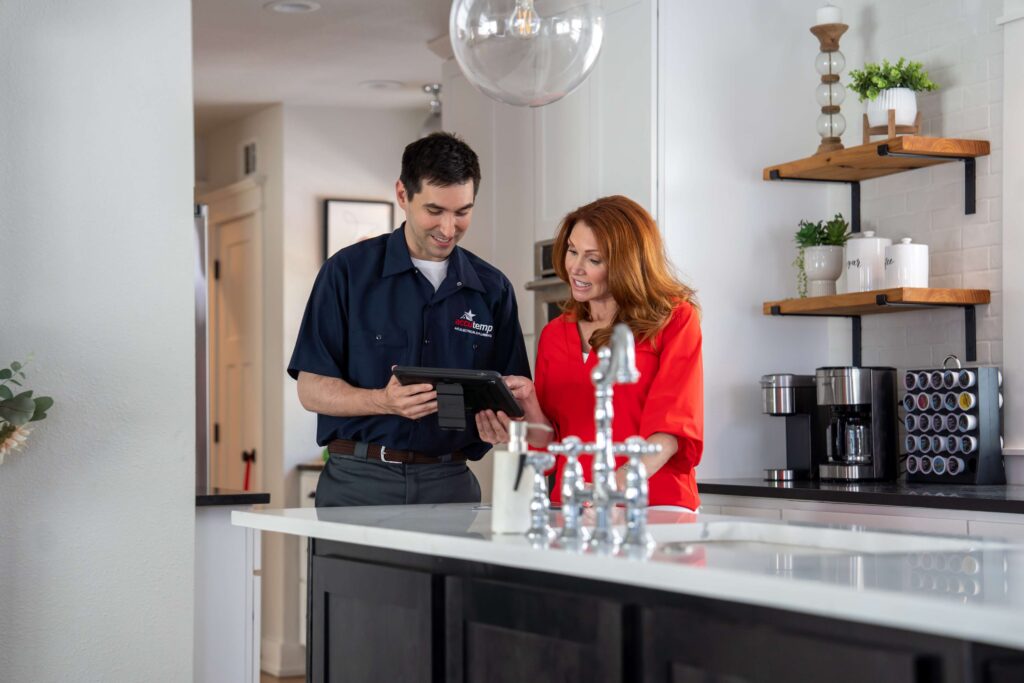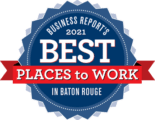
Of the plumbing issues a property owner can face, a sewer backup is among the most serious.
A sewer backup can cause significant damage to your property and put occupants at risk of health complications from raw sewage. Although what causes a sewer backup in the first place? We’re here to look at the most common causes behind a sewer line backup to give you a better understanding of how this plumbing issue starts.
What Are the Most Common Causes of Sewer Backups?
Several factors can cause a sewer backup. The good news is that you’re likely to notice signs such as bad odors, slow drainage, and water backing up before it turns into an emergency. Let’s look deeper into the most common causes of a sewer line backup and how you can respond.
1. Blocked Pipes
One of the most common causes of a sewer backup is a blocked pipe. Clogging within the sewer line can result from the accumulation of grease, soap, food, and hair, or the disposal of unsuitable items like baby wipes, sanitary products, or paper towels.
Whether it’s debris accumulation or a single obstruction, the flow of wastewater becomes restricted, causing sewage to back up through various drains.
Turn to a professional plumber for proven drain cleaning methods to effectively eliminate the blockage. Have your drains regularly cleaned to help curb the potential for backups and keep your sewer line free of obstructions.
2. Tree Root Growth
Invasive tree root growth is also a leading culprit behind a sewer line backup.
Tree roots naturally gravitate towards moisture as they grow—and sewer lines are a prime candidate. This is especially true for homes with older piping materials, such as clay, which aren’t as durable. As tree roots infiltrate the line, not only can they create a blockage, but they can also collapse the sewer line.
In the event of a suspected sewer backup from tree root infiltration, reach out to a professional plumber for an inspection. Cameras can be deployed into the sewer line for inspection, and further methods, such as hydro-jetting, can be utilized to address the blockage.

3. Damaged Sewer Lines
Damage to the property’s sewer line is known to cut off the flow of wastewater, creating the opportunity for clogs, blockages, and backups. Sewer line damage comes in a variety of forms as a result of general wear and tear, shifting soil, and earthquakes.
Addressing a damaged sewer line should start with contacting a local and trusted New Orleans plumbing company for an inspection to identify the source. After the inspection, a plumber can determine if repairs or replacement are the necessary route forward.
4. Rainfall
While public sewer systems can withstand a substantial amount of water, heavy rainfall can put stress on them.
If rainfall is too much, water can flow back through the main sewer line and create a sewer backup. It’s common that this type of sewer backup only lasts until the rainfall stops, but the potential for water damage is still prevalent if the issue isn’t addressed.
The best way to prevent this complication is by installing a backflow valve or sump pump to stop water from flowing back into your property. Reach out to a plumbing expert to find the best option for you.
Read More: What Are the Benefits of Flushing a Hot Water Heater?
5. Old Sewer Systems
Older sewer systems made of materials like cast iron or clay are more prone to cracks and total collapse. This is a common occurrence for homes built before the 1970s. As these pipe materials degrade, a sewer line backup can occur.
If your property runs on an old sewer system, make sure to schedule inspections frequently. Above all, consider replacing the pipes with newer and more durable materials for long-term reliability.

6. Incorrect Disposal of Grease and Waste
Grease, food waste, and non-degradable items should not be put down the drains of your property. Incorrect disposal of grease and waste can clog your pipes and create a backup, potentially causing damage to the water line.
Make sure to throw grease away in a heat-resistant container. For food waste, use strainers to catch particles and dispose of them afterward.
7. Municipal Sewer Issues
There are instances where a sewer backup is simply out of your control. Issues such as blockages or failures within the municipal sewer system can lead to a backup on your property.
In this case, contact your local water department to report the problem. The installation of a backflow valve can also help prevent this issue.
8. Sump Pump and Gutters Mismanagement
During heavy rainfall, gutter systems and sump pumps connected to the sanitary sewer can overload the system. This is a mismanagement issue that can lead to a sewer backup.
Make sure the sump pump and gutter system are connected to the storm sewer to prevent issues. Additionally, routinely clean your gutters and downspouts to remove debris and keep the system functioning properly.

Professional Sewer Line Repair and Replacement Services
If you have a sewer backup in your home, contact our professional plumbers to receive assistance. Our team members offer sewer line repair services in New Orleans, Louisiana and the surrounding areas. We also offer a variety of other plumbing services including drain cleaning, hydro-jetting, and water line replacement.
Our team of experienced and licensed plumbers offers a comprehensive package of plumbing options to best address the issue affecting your home or business. To receive assistance with a clogged sewer system or other plumbing issues, reach out to our team immediately.














